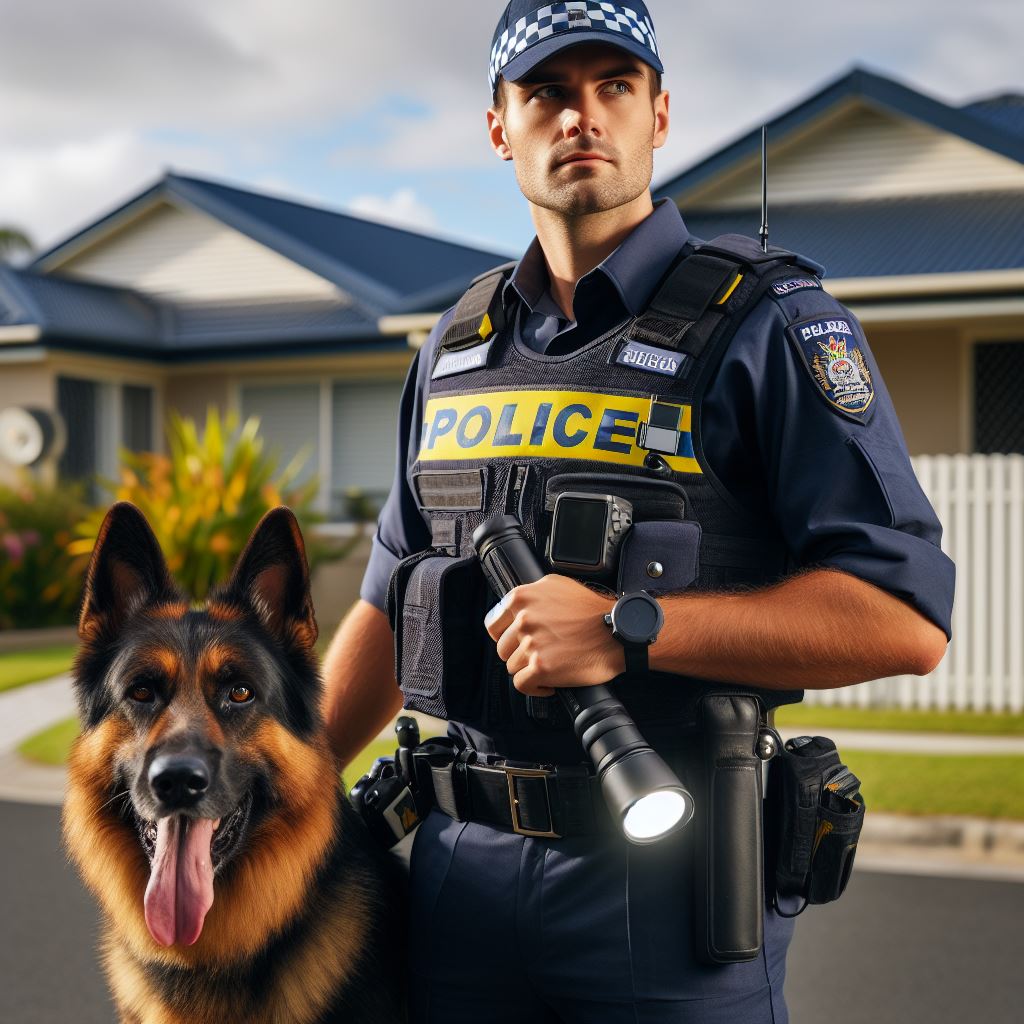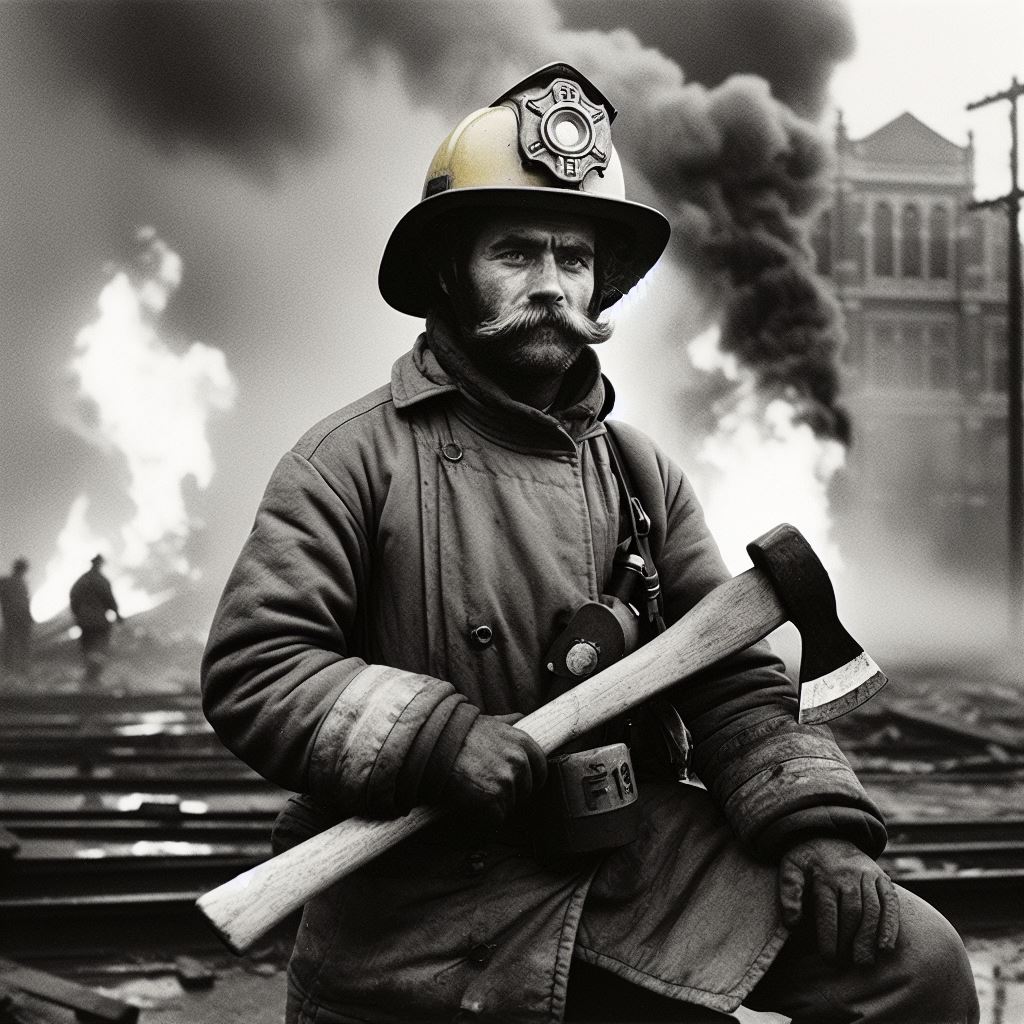Introduction
The Australian Police, a formidable law enforcement entity, stands as a bastion of public safety and security across the continent.
With a rich history dating back to the early days of the Australian colonies, modern policing has evolved into a sophisticated and adaptive force.
Comprising federal, state, and territorial agencies, the Australian Police work collaboratively to uphold the rule of law, combat crime, and ensure the well-being of communities.
Emergencies, in the context of law enforcement, encompass a broad spectrum of situations demanding immediate attention and strategic response.
Defined as unforeseen and often critical incidents, emergencies can range from natural disasters and accidents to criminal activities and public disturbances.
The Australian Police play a pivotal role in effectively managing and mitigating the impact of emergencies, employing proactive measures to safeguard lives, property, and societal order.
As we delve into the intricacies of Australian policing and emergency response, it becomes apparent that the Australian Police’s commitment extends beyond routine law enforcement.
This introduction sets the stage for a comprehensive exploration of the dynamic landscape in which the Australian Police operate, showcasing their dedication to ensuring the safety and security of the diverse communities they serve.
Join us on this journey as we unravel the layers of law enforcement intricacies and emergency response strategies that define the role of the Australian Police in safeguarding the nation.
Australian Police’s Role in Emergencies
In times of emergencies, the Australian Police plays a critical role as first responders. They are equipped and trained to handle high-pressure situations, ensuring the safety and wellbeing of the public.
Let’s take a closer look at the different responsibilities they carry out during such events.
First responder duties
- Initial response to emergency calls: When an emergency call is made, the police are the first to arrive at the scene. Their prompt and immediate action can save lives and minimize damage.
- Assessing the situation and securing the area: Police officers assess the situation upon arrival. They evaluate the risks involved and take necessary measures to secure the area, ensuring the safety of everyone involved.
Maintaining public safety
- Traffic control and crowd management: During emergencies, traffic control becomes crucial to avoid congestion and facilitate the arrival of other emergency services. Police officers manage the flow of vehicles to ensure a smooth operation. Additionally, they handle crowd management, especially in situations where panic or chaos might arise. Their presence helps maintain order and ensures the safety of the public.
- Conducting evacuation procedures: Police officers are responsible for implementing evacuation procedures when required. They coordinate the safe evacuation of individuals from affected areas, prioritizing their safety.
Collaboration with other emergency services
- Coordination with fire and ambulance services: Effective communication and coordination between the police, fire, and ambulance services are vital during emergencies. They work together to provide a seamless response, ensuring the appropriate allocation of resources and assistance.
- Joint efforts in disaster management: When faced with large-scale disasters, such as natural calamities or major accidents, the police, fire, and ambulance services collaborate extensively. They pool their resources, knowledge, and skills to efficiently manage and mitigate the situation.
In essence, the Australian Police’s role in emergencies goes beyond law enforcement. They serve as the first responders, ensuring immediate action and securing the area.
Their responsibilities also encompass maintaining public safety, including traffic control, crowd management, and conducting evacuation procedures.
Additionally, their collaboration with other emergency services is crucial for effective disaster management. The Australian Police’s commitment to protecting the community during crises is vital for the overall safety and wellbeing of the nation.
Read: Technology’s Impact on Diplomacy
Specialized Units and Training for Emergency Situations
In Australia, the police play a significant role in responding to emergencies and maintaining public safety. To effectively handle various emergency situations, specialized units and comprehensive training programs are in place.
These measures ensure that the Australian Police are well-equipped to protect and serve the community.
Tactical Response Group (TRG)
A notable specialized unit within the Australian Police is the Tactical Response Group (TRG). This elite team has a vital role in high-risk and critical incidents.
Whether it’s dealing with armed offenders, hostage situations, or terrorism threats, the TRG is specially trained and equipped to respond swiftly and decisively.
Their primary objective is to neutralize threats while ensuring the safety of both the public and police personnel. Through their precise tactics and advanced equipment, the TRG acts as a formidable force in emergency situations.
State Emergency Service (SES)
Another essential unit within the Australian Police is the State Emergency Service (SES). While not directly involved in law enforcement, the SES plays a crucial support role during emergencies.
They are specifically trained in search and rescue operations, helping locate and save individuals trapped in dangerous situations.
Whether it’s natural disasters like floods or storms or accidents requiring technical extrication, the SES is at the forefront of providing essential assistance during critical moments.
Training programs for police officers
To ensure that police officers are adequately prepared for emergency situations, comprehensive training programs have been implemented.
These programs encompass various aspects of emergency response training to enhance their skills and capabilities.
Officers are trained in rapid and effective decision-making, enabling them to respond quickly to evolving scenarios.
Additionally, crisis negotiation and de-escalation skills are emphasized in their training, aiming to resolve potential conflicts peacefully and avoid unnecessary harm.
The training provided equips police officers with the necessary knowledge and skills to handle emergencies with professionalism and tact.
By being prepared for different situations, they can adapt to unpredictable circumstances, ensuring the safety and security of the public.
Furthermore, ongoing training and updates to procedures and protocols keep officers up-to-date with the latest practices and technologies available to them.
In fact, specialized units such as the Tactical Response Group (TRG) and the State Emergency Service (SES) form an integral part of the Australian Police’s emergency response capabilities.
Through their specialized training and equipment, they are well-prepared to handle high-risk incidents and provide essential support during emergencies.
Additionally, the comprehensive training programs for police officers ensure they possess the necessary skills and knowledge to effectively respond to crisis situations.
Ultimately, these measures contribute to the overall safety and well-being of the Australian community.
Read: Future of Diplomacy: Australia’s Role
Examples of Australian Police’s Role in Recent Emergencies
In recent years, the Australian police have demonstrated their pivotal role in handling various emergencies that have challenged the country.
This section will highlight some examples of their proactive involvement and the significant impact they make in safeguarding communities and protecting lives.
Bushfire Emergencies
Bushfires are a recurring threat in Australia’s dry and hot climate.
During these emergencies, the Australian police actively engage in essential tasks to ensure the well-being of affected individuals and communities.
Firstly, they focus on evacuation efforts and provide critical support to people who need to leave their homes for safety.
This is a complex operation that requires effective coordination and communication to ensure swift and organized evacuations.
Additionally, Australian police play a crucial role in deploying firefighting resources.
They collaborate with other emergency services and government agencies to efficiently allocate firefighters, fire trucks, and aerial resources to combat the raging bushfires.
This involvement ensures that resources are effectively utilized and that the response is adequately scaled to match the severity of the situation.
Natural Disasters
Apart from bushfires, Australia is prone to various natural disasters, such as floods and storms.
During these events, the Australian police step up to conduct search and rescue operations.
They work tirelessly to locate and save individuals who may be trapped or stranded due to rising waters or other dangerous circumstances.
These operations require specialized skills and equipment to safely extract people and bring them to safety.
Additionally, Australian police actively assist in emergency relief efforts during natural disasters.
They provide resources, logistical support, and aid to affected communities, ensuring that essential supplies, medical assistance, and temporary shelter are readily available.
This assistance helps to alleviate the immediate hardships faced by those impacted and facilitates the recovery process.
Terrorist Incidents
In the face of the evolving global security landscape, Australian police maintain a vigilant and prepared stance to address potential terrorist incidents.
Through their rapid response capabilities, they swiftly react to these situations, aiming to neutralize threats and protect the public.
Their training and expertise allow them to handle high-pressure scenarios and effectively coordinate with other emergency services.
Moreover, the Australian police collaborate closely with national security agencies to combat terrorism.
This partnership involves sharing intelligence, coordinating investigations, and implementing robust counterterrorism measures.
By working together, they enhance the country’s overall security and resilience, ensuring proactive measures are in place to prevent terrorism and respond effectively if an incident occurs.
In review, the Australian police play a vital role in various emergencies, such as bushfires, natural disasters, and terrorist incidents.
Their active involvement in evacuation efforts, resource deployment, search and rescue operations, relief efforts, and counterterrorism measures showcases their commitment to protecting the Australian community.
Their dedication and professionalism contribute significantly to the nation’s resilience and ability to overcome challenging situations.
Read: Understanding Ranks in Australian Police Force
Your Personalized Career Strategy
Unlock your potential with tailored career consulting. Get clear, actionable steps designed for your success. Start now!
Get Started
Discover More: Tech’s Influence on Policy Analysis in AU
Explore Further: The Role of Volunteer Firefighters in AU
Challenges and Future Outlook
Despite their immense dedication and commitment, the Australian police face several challenges in their role in emergencies. These challenges require careful consideration to ensure the future outlook remains positive.
Increasing frequency and complexity of emergencies
One of the significant challenges faced by the Australian police is the increasing frequency and complexity of emergencies. With the changing dynamics of society and the evolving nature of threats, emergencies are becoming more frequent and harder to manage.
Police officers are now confronted with diverse emergencies ranging from natural disasters, terrorism incidents, to cybercrimes. Each emergency requires a different set of skills and strategies, placing additional pressure on the Australian police to adapt swiftly.
To address this challenge, the Australian police need to constantly update their emergency response protocols, conduct regular drills, and ensure that their officers receive comprehensive training in various emergency scenarios.
Adequacy of resources and funding
An essential aspect of effective emergency response is having adequate resources and funding. However, the Australian police often face constraints in this area, which can hinder their ability to respond promptly and efficiently.
Securing sufficient resources, including personnel, equipment, and technology, is crucial to successfully managing emergencies.
Without proper funding, the police may experience delays in acquiring necessary equipment and may struggle to maintain an adequate number of trained personnel.
The Australian government needs to prioritize funding for emergency response capabilities to ensure that the police have the necessary resources to address any situation effectively.
Integration of technology for effective emergency response
In today’s rapidly advancing technological landscape, the Australian police must embrace and integrate technology for efficient emergency response.
Technological advancements, such as real-time data analytics, drones, and geospatial mapping, can significantly enhance the police’s situational awareness and response capabilities.
These technologies enable the police to gather and analyze information quickly, allocate resources effectively, and make informed decisions during emergencies.
However, integrating technology into existing systems and processes can be a challenge. It requires significant investment, infrastructure upgrades, and training for police officers to utilize these technologies effectively.
The Australian police need to actively collaborate with technology experts and allocate resources to ensure successful integration and utilization of technology for emergency response.
Continuous training and skill development for police officers
Equipping police officers with the necessary skills and knowledge is paramount for effective emergency response. Ongoing training and skill development programs are crucial to ensure that police officers remain well-prepared and capable of handling emergencies.
Continuous training enables police officers to stay up to date with the latest tactics, techniques, and procedures for emergency response.
It also provides them with an opportunity to enhance their communication skills, leadership abilities, and decision-making capabilities.
Stand Out with a Resume That Gets Results
Your career is worth more than a generic template. Let us craft a resume and cover letter that showcase your unique strengths and help you secure that dream job.
Get HiredThe Australian police should invest in comprehensive training programs that simulate real-life emergency scenarios, offer specialized training in areas such as crisis negotiation and conflict resolution, and provide opportunities for continuous professional development.
In general, the challenges faced by the Australian police in their role in emergencies require proactive measures and adequate resources.
Addressing the increasing frequency and complexity of emergencies, ensuring sufficient funding, integrating technology, and providing continuous training are key to enhancing the future outlook of the Australian police in effectively responding to emergencies.
Read: How to Become a Police Officer in Australia
Conclusion
The Australian Police play a crucial role in responding to emergencies and ensuring public safety. They are at the frontline, protecting and serving the community during times of crisis.
Their contribution to public safety cannot be understated. They provide assistance, maintain order, and enforce the law, ensuring the well-being of individuals and communities affected by emergencies.
We must recognize the ongoing efforts of the Australian Police in handling emergencies despite the challenges they face. They often work under high-pressure situations, putting their own lives at risk to safeguard others.
The Australian Police’s role in emergencies is indispensable. They act as the first point of contact for individuals in distress, providing immediate assistance and support. Their presence brings reassurance and a sense of security during uncertain times.
They conduct search and rescue operations, helping locate missing persons and trapped individuals. They also coordinate with other emergency response agencies to ensure a seamless and effective response to emergencies.
Furthermore, the Australian Police enforce evacuation orders, maintaining order and facilitating the timely evacuation of affected areas. They patrol affected neighborhoods, deterring crime and preventing further harm to the community.
Their contribution to public safety extends beyond emergency response. They conduct investigations to identify the causes of emergencies, gather evidence, and hold accountable those responsible for harm or criminal activity.
Despite their dedication and commitment, the Australian Police face numerous challenges. They must navigate unpredictable and hazardous situations, encountering potential dangers while striving to protect others.
They also work long hours, often sacrificing personal time and comfort to ensure the safety and well-being of the community. These challenges highlight the resilience and bravery of the Australian Police force.
In closing, the Australian Police play a crucial role in emergencies by providing immediate support, facilitating evacuations, enforcing the law, and ensuring public safety. Their ongoing efforts and sacrifices deserve our appreciation and support.




